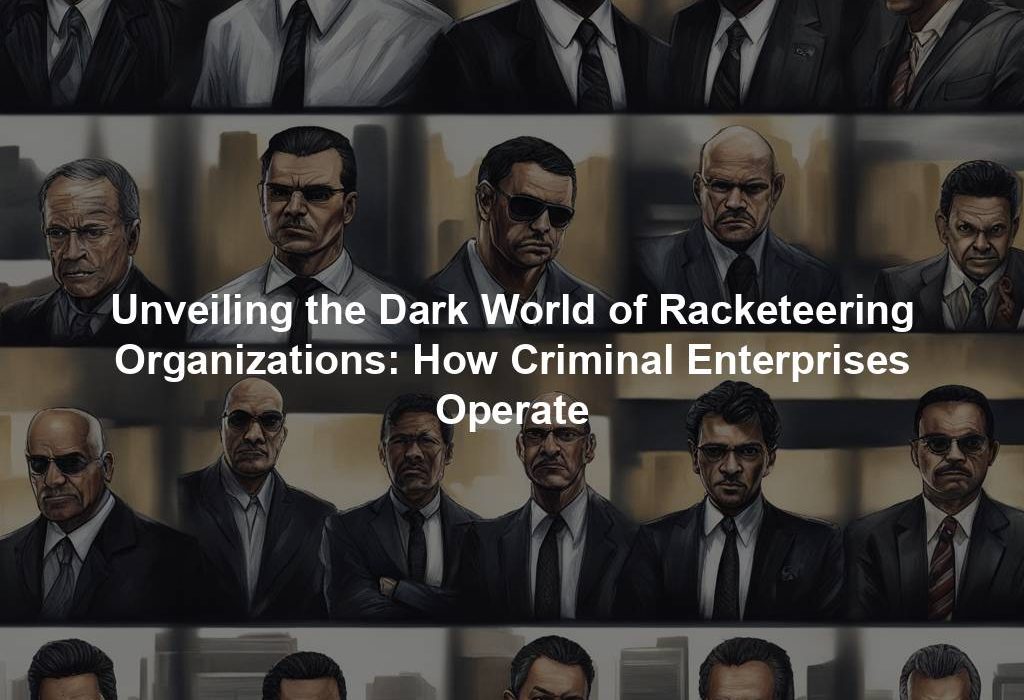Unveiling the Intricate World of Racketeering Organizations: How Criminal Enterprises Function
Racketeering organizations have long plagued society, engaging in illicit activities like drug trafficking and human smuggling. These criminal enterprises operate covertly, eluding law enforcement and perpetrating violence in their communities. In this narrative, we will explore the inner workings of racketeering organizations, delving into their operations, societal effects, and the ongoing efforts to dismantle them.
Understanding Racketeering
Racketeering entails participating in illegal deeds such as bribery, extortion, and fraud to reap profits. These actions can be undertaken by individuals, groups, or organizations and are often marked by the use of force or coercion to achieve their objectives.
Racketeering organizations, also termed criminal syndicates or enterprises, are structured hierarchically, engaging in various unlawful activities for financial gain. These organizations often span multiple jurisdictions, with potential international connections, making tracking and prosecuting them challenging.
Operational Dynamics of Racketeering Organizations
Racketeering organizations function akin to legitimate businesses, with a defined hierarchy and division of roles. The leadership, comprising a select few individuals, makes crucial decisions and sets the organization’s overall direction. Below them are lieutenants, enforcers, and foot soldiers responsible for day-to-day operations.
One primary revenue source for racketeering organizations is through illicit gambling ventures. These operations, ranging from underground casinos to sports betting rings, yield millions for the organization. Apart from gambling, these groups may also partake in drug trafficking, human trafficking, and extortion.
Societal Impacts of Racketeering Organizations
Racketeering organizations deeply impact society, fostering heightened violence, corruption, and a decline in trust towards public institutions. These entities often operate without fear, using intimidation to control their territories and thwart law enforcement.
Beyond the immediate harm caused by their activities, racketeering outfits have enduring repercussions on society. Profits funneled from criminal endeavors often flow into legitimate businesses, aiding in their expansion and solidifying their presence in communities.
Efforts to Counter Racketeering Organizations
Law enforcement at various levels have long battled racketeering organizations, employing diverse strategies to disrupt their activities and dismantle their networks. The Racketeer Influenced and Corrupt Organizations (RICO) Act stands as a potent tool in prosecuting individuals involved in racketeering.
Alongside legal actions, authorities have targeted the financial underpinnings of these organizations, seizing assets and freezing accounts to choke their funding sources. These initiatives have yielded successes, leading to the apprehension of key members and the dismantling of criminal operations.
In Conclusion
Racketeering organizations pose a significant menace, engaging in a spectrum of illicit activities to amass wealth and extend their influence. Operating clandestinely, they evade law enforcement and perpetrate violence in their communities.
While strides have been made in combating these outfits, the battle against racketeering organizations endures, necessitating persistent vigilance and collaboration between authorities and the public to eradicate their criminal activities.




